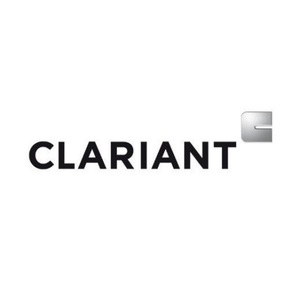ORLEN Poludnie to license Clariant's sunliquid technology

September 23, 2019
BY Clariant
Clariant, a focused and innovative specialty chemical company, and ORLEN Południe, a member of ORLEN Group, which is a leader in the fuels and energy markets and the largest player in Central and Eastern Europe, signed a license agreement Sept. 20 on sunliquid cellulosic ethanol technology.
The announcement represents a significant strategic milestone for Clariant as this second license agreement for its sunliquid technology is another successful step to commercialize its highly innovative and sustainable technology. For ORLEN PoÅ‚udnie, the agreement supports the intention to realize a full scale commercial plant for the production of cellulosic ethanol from agricultural residues, which will further solidify the company’s position as a forerunner in the Polish biofuels and bio-component technologies.
Advertisement
Advertisement
“We are excited by the continued interest in our sunliquid® cellulosic ethanol technology and proud to have signed this second license agreement. It shows that our long-term strategic commitment to innovation and sustainability can deliver additional growth above and beyond Clariant's current strong portfolio”, said Hans Bohnen, Clariant’s Chief Operating Officer.
“In line with our strategy, we consistently develop and strengthen the Group companies, including ORLEN PoÅ‚udnie. We invest in modern technologies and focus on high-margin products, as they will be crucial to maintaining our leading position in the region in the coming years. At the same time, we do not forget about corporate social responsibility and we apply solutions that significantly mitigate our environmental impact,” said Daniel Obajtek, president of the PKN ORLEN management board.
Advertisement
Advertisement
The license agreement enables ORLEN PoÅ‚udnie to use Clariant’s sunliquid technology for the project development and plant operation it is planning to execute at its Jedlicze site in southeastern Poland, utilizing available land and the integration potential with the existing Jedlicze petroleum refinery. It is planned that the annual production capacity will be 25.000 tons.
Related Stories
CoBank’s latest quarterly research report, released July 10, highlights current uncertainty around the implementation of three biofuel policies, RFS RVOs, small refinery exemptions (SREs) and the 45Z clean fuels production tax credit.
The U.S. Energy Information Administration maintained its forecast for 2025 and 2026 biodiesel, renewable diesel and sustainable aviation fuel (SAF) production in its latest Short-Term Energy Outlook, released July 8.
XCF Global Inc. on July 10 shared its strategic plan to invest close to $1 billion in developing a network of SAF production facilities, expanding its U.S. footprint, and advancing its international growth strategy.
U.S. fuel ethanol capacity fell slightly in April, while biodiesel and renewable diesel capacity held steady, according to data released by the U.S. EIA on June 30. Feedstock consumption was down when compared to the previous month.
XCF Global Inc. on July 8 provided a production update on its flagship New Rise Reno facility, underscoring that the plant has successfully produced SAF, renewable diesel, and renewable naphtha during its initial ramp-up.
Upcoming Events










